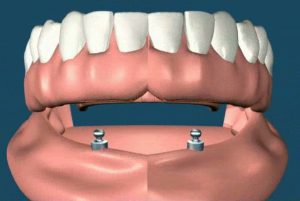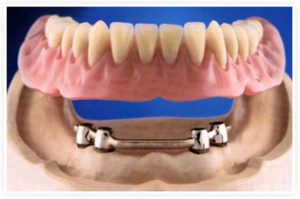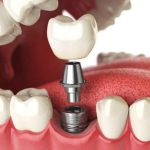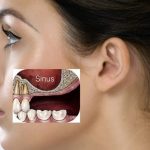Implants and Prosthetics
Today, dental implants are undoubtedly the best alternative to natural teeth.
Compared to traditional bridges and dentures, they provide better speech and chewing function while also offering a natural appearance for your face.
It is now understood that implants will be one of the most studied dental treatments of the 21st century. When applied with accurate diagnosis, sufficient knowledge, experience, and proper equipment, dental implants can offer exceptionally successful results for both the patient and the dentist.


Cases Where Implant Treatment Is Applied and the Advantages It Provides
-
-
Patients who have lost all teeth in the lower jaw and wear dentures:
These patients often complain of constant pain (due to denture pressure sores) and difficulty chewing because of the movement of the denture. Over time, these complaints worsen due to the resorption of the bone that supports the denture. In such patients, implant treatment not only eliminates all these complaints but also stops bone loss. -
Patients who have lost all teeth in the upper jaw and wear dentures:
Although upper dentures are generally more stable than lower ones, their design covering the palate can reduce the sense of taste and cause nausea. -
Patients who have lost some of their teeth in the upper or lower jaw:
These patients often complain about the unsightly appearance of dentures held by metal clasps or the need to grind down healthy teeth in order to fit a bridge. -
Patients who have lost a single tooth:
These patients must sacrifice at least two neighboring healthy teeth to restore a single missing one. Placing a single implant not only saves the adjacent teeth but also results in more aesthetic and functional outcomes.
-


